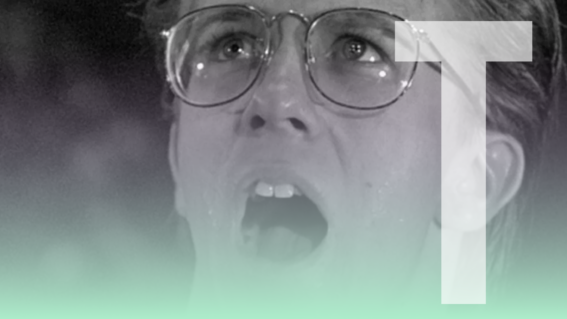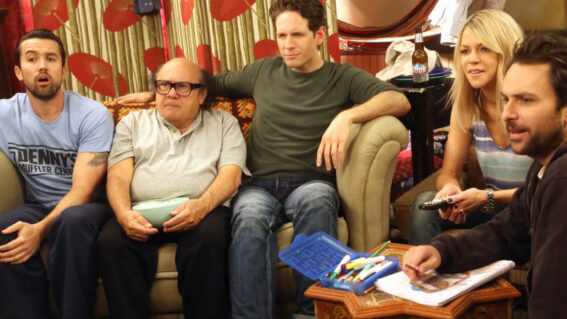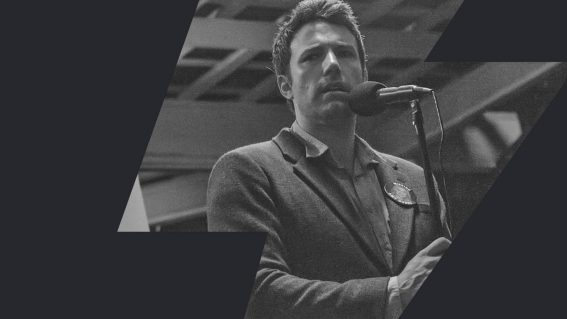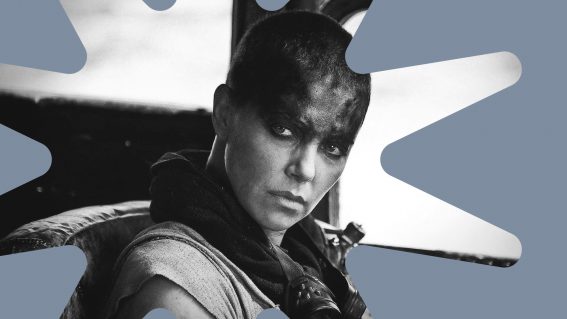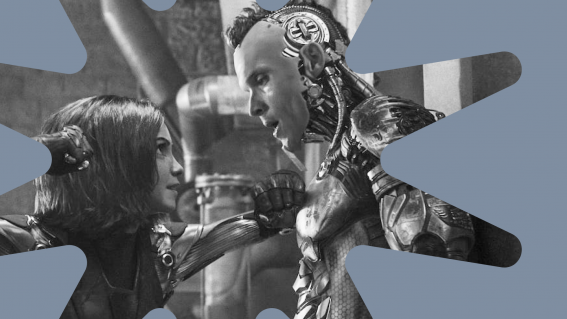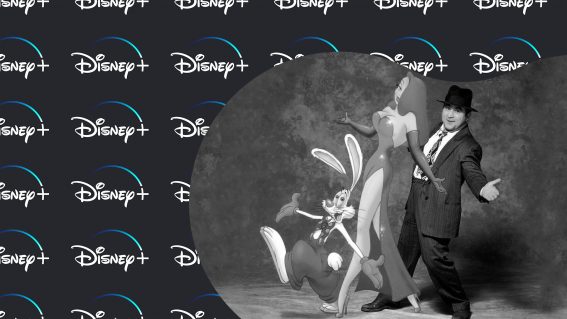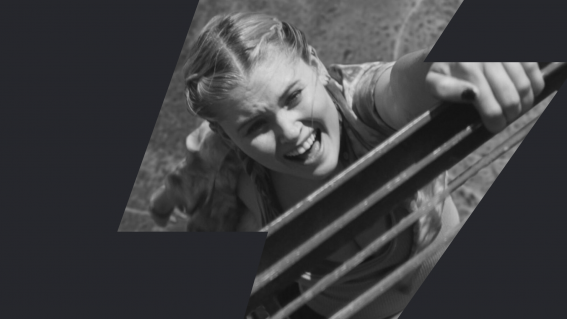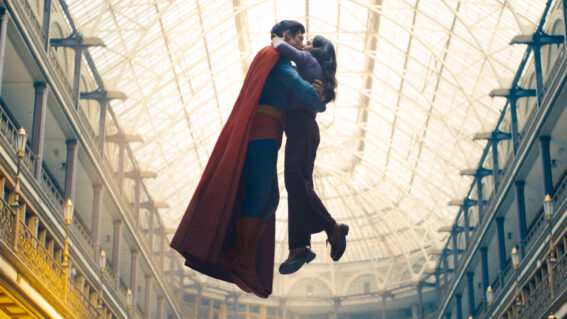Interview: ‘Night Moves’ writer-director Kelly Reichardt
After impressing recent film festival audiences, Night Moves (no, not the 1975 one with Gene Hackman) returns to the big screen this week. Jesse Eisenberg, Dakota Fanning and Peter Sarsgaard star as radical environmentalists who put their ideologies to the test by conspiring to blow up a hydroelectric dam in this thriller from lyrical indie […]
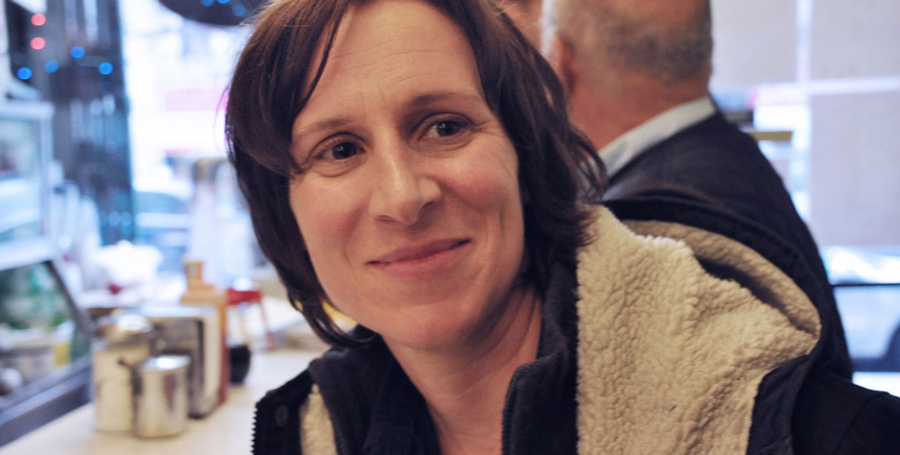
After impressing recent film festival audiences, Night Moves (no, not the 1975 one with Gene Hackman) returns to the big screen this week. Jesse Eisenberg, Dakota Fanning and Peter Sarsgaard star as radical environmentalists who put their ideologies to the test by conspiring to blow up a hydroelectric dam in this thriller from lyrical indie director Kelly Reichardt (Meek’s Cutoff). Reichardt was kind enough to chat about her film with us – explaining how tough some of the nights on set were. what her cast brought to the film, and how dangerous blind allegiance to ideology can become.
FLICKS: You had so many night shoots for this film that I would imagine there was a fairly freezing environment for many days on the shoot.
KELLY REICHARDT: That’s correct. Freezing, wet and freezing. That is what shooting in Oregon is – wet and freezing. Yes, it was freezing. It was freezing [chuckles].
Obviously with so much shot around the dam set and on the river and at night, I guess that’s quite a massive proportion to be filming at night and freezing.
Yeah, I think the night we shot the party scene where Alia Shawkat was her first night, where she did this scene in the barn with Jesse [Eisenberg]. Oh my God, it was an all night shoot and it was 20 degrees [that’s minus 6 to us down under]. I remember meeting her in the freezing cold, but we all stayed healthy somehow. Your stress holds it together so that you don’t get sick until after the movie.
Once again, you’re working with a great cast on the film and it’s something that marks your filmography to date. For a viewer, it’s obviously very important to have great acting talent on the screen. As a film maker, at what point does your cast start to solidify? Do the cast bring new things to your film or is the script ready to go and you’re out finding the right people for it?
Things are always moving but yeah, you try to have the script pretty far along when you go out to the cast. Jesse came out and I had more time with him than I usually have with an actor before we shoot, just because he came out on his own time. He wanted to live at the farm and live in the yurt and work on the farm. He and John Raymond and I went to an activist meeting together and then he and I had time to go through the script and do some scenes together, and we did – that was an unusual thing. We did adjust some scenes that he wanted to try in a different tone and take a different approach to two scenes in particular. It worked out well, but usually, things are happening really fast and we’re sticking with the script.
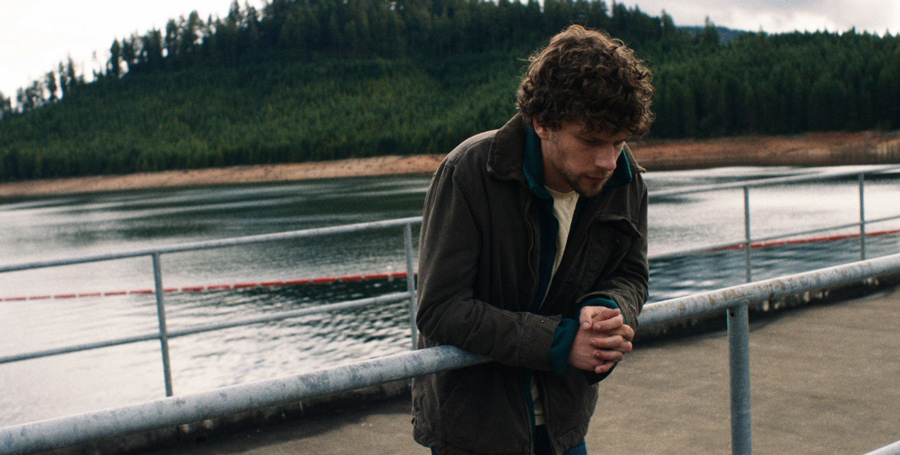
I guess that’s par for the course with a tight budget.
Yeah, except you can plan and plan and plan but with a lot of the films, we have a lot of animals and especially Meek’s Cutoff. In that case [chuckles] you could plan all you want but then a bull is a bull and things have their own life, like the dam. You can storyboard that and plan it, which we do, down to the T. Chris Blauvelt, my DP, and I practice it but then on the night you’re doing it, in the cold, with the actors and you adjust.
Jesse delivers such an introspective performance, expressing so little but with so much on his shoulders as far as this character and the overall film goes.
You never really know how it’s all going to go until you’re standing in the rain with someone and they’re up to their boots in mud. But who knew Dakota [Fanning] and Jesse would just be so down for it. Peter came a bit later but just all of them, they were so down for the experience. Jesse, yeah, he just got into the whole world really deeply there. He has a busy mind and you don’t need a lot of dialogue to get through with him.
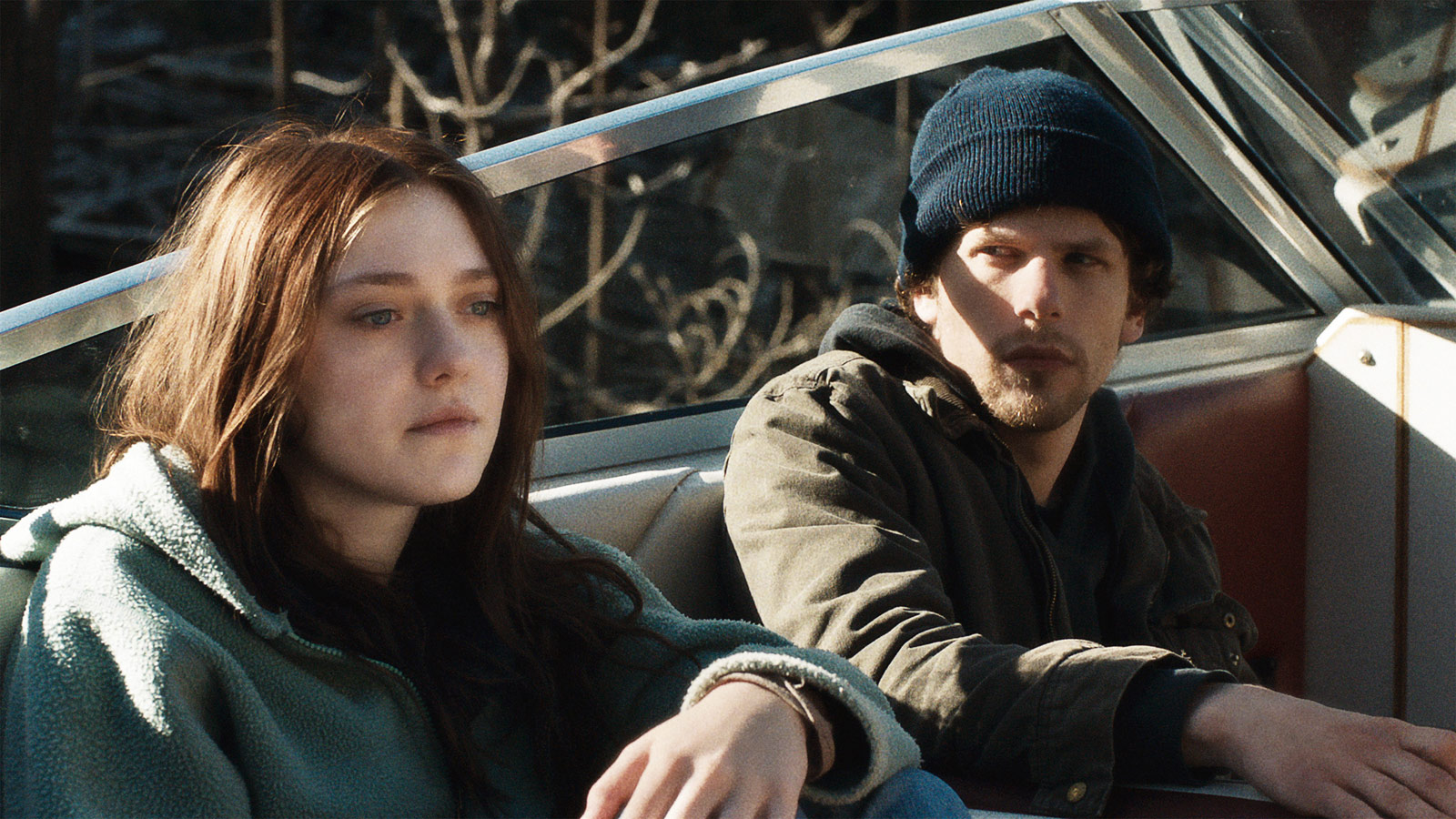
There’s something quite interesting about bringing this top line talent to a film that has a very core narrative of activism. Hollywood actors, Hollywood stars often promote causes. It’s quite interesting seeing them go into something that’s more fringe.
I know. It was lucky for me they were interested in it [chuckles]. Dakota, I love Dakota and I was afraid that she might be a little young for the part. We had a phone call and she was like, “This is my part and I’m not too young for it.” She was so Dena on the phone that I was like, “Okay.” I never thought of it again. It was never an issue again. She was right. She’s such a self-possessed person, she really knows what she’s capable of and, likewise, Jesse read the script and they both just really dove into it. Peter had been attached to the movie for a really long time, before I had talked to Dakota or Jesse, so yeah, it was very fortunate but they dove right in. It was nice.
What was it that first drew you to the subject matter of this activism and actions that cross the threshold from the theoretical to the dangerous?
Well, we really started with John Raymond, who had friends that owned the organic farm that we ended up shooting on. He had been spending a lot of time down there and started bringing me down. We were nosing around about the politics of local farming and what goes on in these scenes. Not that blowing up dams goes on, but just the world where everyone is consciously deciding what the right way to live is and in their scope is very much this question of how much you use and how much you should be using and how you could use less.
That world was pretty fascinating and so we came up with this idea of a fundamentalist – who’s the Eisenberg character – in this setting where he’s surrounded in this organic farm setting. But he could’ve easily have been set in a Tea Party world. He’s just absolutely, totally sure of his ideology, totally sure of his instincts – not a person looking at the grey areas, and dangerously so. That was some of the beginning thoughts of it. Then we really tried to take our own politics out of it and after we had designed these three characters, just tried to really be true to their thinking and their motives and not let our own thinking get into it. It’s a character film and this is what these characters are doing.
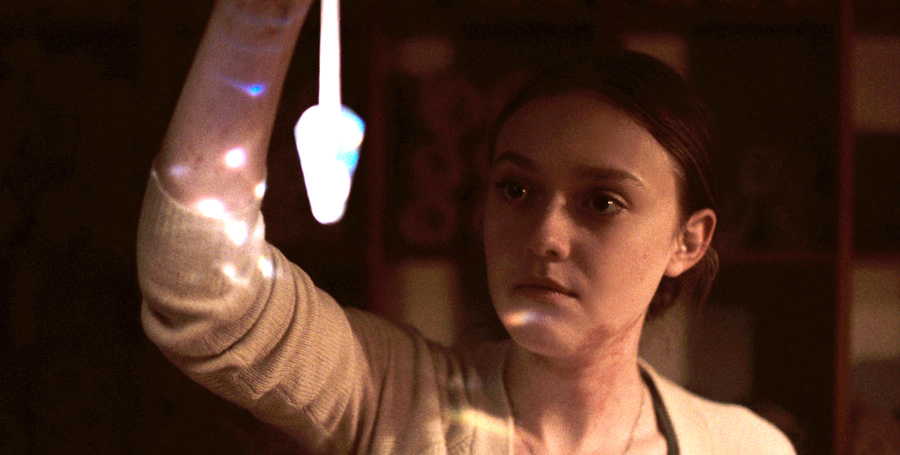
It really comes across that it’s their conviction that’s the crucial component rather than necessarily the thinking behind it. That’s relevant, as you say, to the Tea Party, also so many different global movements that are capturing that moment where things take a step out of the idea and into the dangerous reality.
Yeah, into the dangerous part, and there’s the group mentality versus how it is when you’re alone with your own thoughts and trust and paranoia, lack of trust and paranoia, and all those things that come in afterwards. I think an interesting thing in the movie is the group dynamic versus when everybody’s operating on their own, and how things become more unraveled when you don’t have that reinforcement.
With Night Moves, even though the characters exist on the fringes of mainstream society, there’s still a very strong sense of community – it’s just a very different one.
Yes. There’s lots of different, I think, little sections of community in the film, even at the campground. People that are camping and enjoying nature in their own way – all about being out in nature, I guess, but then you have your loud jetski and you’re jetskiing in a reservoir that used to be a forest, or you’re watching your TV in your camper – all the big accoutrements that are anything but getting away from it all, as far as I can tell. But there’s that community and then there’s the community that wants to get together and work within the law to try to change things, and then the community of farms, then this more rogue group that feels like that other stuff is too slow and perhaps bullshit and a bigger statement needs to be made.
From that end of the activist community, has there been much feedback on the film?
I don’t really know because our people that helped us with the film down there haven’t seen the movie sadly. I guess some of them have, actually. I guess some of them have. I haven’t really been at the screenings the way I have with some of the other films. I went to France with the movie and audiences just got in big arguments with themselves about things like ‘what is terrorism?’ and ‘who are the real terrorists?’. ‘Is it Exxon Mobil or is it a guy who goes out and blows up a dam?’, which was very exciting because they didn’t even ask me any questions – everybody just fought amongst themselves which was fun to watch!
But I haven’t had a lot of interaction with the film in America, sadly. This round of distribution’s been different.
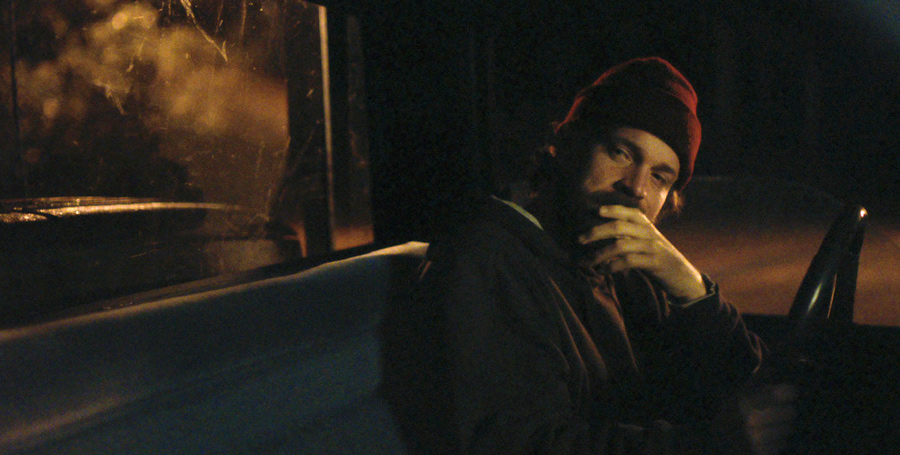
One last quick thing before we have to go. You build tone very successfully in the film, helped a lot by Jeff Grace’s score. He’s been thrashed in our office recently with his score for Cold in July. What was it like getting his music and putting that together with the images you captured?
It’s a long process, really long process. I started working with him as soon as I have an assembly of the film together and so he is working through many, many cuts of the movie. It’s just really a search that goes on for a long time. He sends me stuff and I try it in the editing room. I go to his studio and it’s a long, searching process that goes right up until the last minute [chuckles]. Even finding the right sounds in the beginning, that’s a huge thing, just to finally figure out, “These are the sounds that we should use,” because they’re not really formal scores in a way – they’re different. The process – he’s up for it, thank goodness – he’s a super talented guy and it’s really more that I don’t write music and it’s hard to articulate before I hear it, so it’s a lot of samples coming to me until we hit on something and then we go, “Okay, yeah.” So yeah, he’s very patient – that’s good.
‘Night Moves’ Movie Times – Playing nationwide Thursday, September 11





